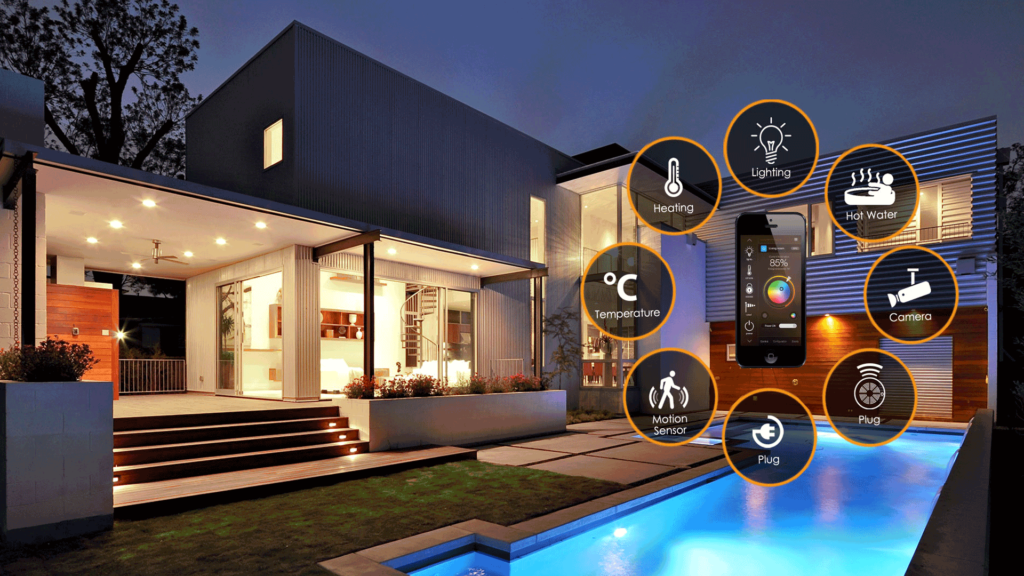In recent years, the concept of smart homes has gained significant traction, revolutionizing the way we interact with our living spaces. The rise of smart homes is closely tied to advancements in artificial intelligence (AI), which is seamlessly integrating into everyday living. From smart thermostats that learn your preferences to voice-activated assistants that manage your daily tasks, AI is transforming our homes into intelligent environments that enhance comfort, security, and efficiency. This article delves into the fascinating world of smart homes and the pivotal role AI plays in this evolution.
As we explore the rise of smart homes, you will learn about the various technologies that are driving this trend, including IoT devices, machine learning algorithms, and home automation systems. We will discuss the benefits of adopting smart home technology, such as energy savings, improved security, and increased convenience. Additionally, we will highlight some of the most popular smart home devices currently on the market and how they can simplify your life.
Furthermore, we will examine the future of smart homes and the potential challenges that come with increased connectivity and data privacy concerns. By the end of this article, you will have a comprehensive understanding of how AI is reshaping our living environments and the exciting possibilities that lie ahead. So, stay with us as we uncover the transformative impact of smart homes on our daily lives!
As technology continues to evolve, the concept of smart homes has gained significant traction. With the integration of artificial intelligence (AI), everyday living is being transformed into a more efficient and convenient experience. This article explores various aspects of smart homes and how AI is playing a pivotal role in this transformation.
Understanding Smart Home Technology
Smart home technology refers to the interconnected devices and systems that allow homeowners to control various aspects of their home remotely. This includes lighting, heating, security, and appliances, all of which can be managed through a central hub or smartphone application. The rise of the Internet of Things (IoT) has facilitated this integration, enabling devices to communicate with each other and provide users with real-time data.
AI enhances smart home technology by learning user preferences and behaviors. For instance, smart thermostats can adjust temperatures based on the time of day and occupancy patterns, leading to energy savings and increased comfort. As more devices become AI-enabled, the potential for creating a truly intelligent home environment grows exponentially.
Energy Efficiency and Sustainability
One of the most significant benefits of smart homes is their potential for energy efficiency. AI-driven systems can optimize energy consumption by analyzing usage patterns and making real-time adjustments. For example, smart lighting systems can automatically turn off when a room is unoccupied, while smart thermostats can learn when to heat or cool a home based on occupancy.
This not only reduces energy bills but also contributes to sustainability efforts. By minimizing energy waste, smart homes can play a crucial role in reducing carbon footprints. Homeowners can monitor their energy usage through apps, gaining insights into their consumption habits and making informed decisions to further enhance efficiency.
Enhanced Security Features
Security is a top priority for homeowners, and smart home technology offers advanced solutions to protect properties. AI-powered security systems can analyze video feeds from cameras, detecting unusual activity and sending alerts to homeowners. These systems can differentiate between normal and suspicious behavior, reducing false alarms and enhancing overall security.
Additionally, smart locks and doorbell cameras provide homeowners with remote access and monitoring capabilities. Users can receive notifications when someone approaches their door, allowing them to communicate with visitors through their smartphones. This level of control and awareness significantly enhances home security and peace of mind.
Voice Assistants and Home Automation
Voice assistants like Amazon Alexa, Google Assistant, and Apple Siri have become integral to smart homes. These AI-driven platforms allow users to control various devices using voice commands, making home automation more accessible and user-friendly. From adjusting the thermostat to playing music, voice assistants streamline everyday tasks.
Moreover, the integration of voice technology with smart home devices creates a seamless experience. Homeowners can create routines, such as “Good Morning,” which can trigger lights, coffee makers, and thermostats to adjust automatically. This level of automation not only enhances convenience but also promotes a more connected lifestyle.
Smart Appliances Revolution
The rise of smart appliances has transformed the way we interact with everyday household items. Refrigerators, ovens, and washing machines are now equipped with AI capabilities, allowing them to learn user preferences and optimize performance. For instance, smart refrigerators can track food inventory and suggest recipes based on available ingredients.
These appliances can also be controlled remotely, enabling users to start a washing cycle or preheat an oven while away from home. The convenience and efficiency offered by smart appliances contribute to a more streamlined daily routine, making household management easier than ever.
Health and Wellness Monitoring
Smart homes are increasingly incorporating health and wellness monitoring features. AI-driven devices can track air quality, humidity levels, and even sleep patterns, providing valuable insights into the living environment. For example, smart air purifiers can adjust their settings based on real-time air quality data, ensuring a healthier home atmosphere.
Wearable devices can also integrate with smart home systems, allowing users to monitor their health metrics and receive alerts for any anomalies. This holistic approach to health and wellness empowers homeowners to make informed decisions about their living conditions and overall well-being.
The Future of Smart Home Integration
The future of smart homes looks promising, with continuous advancements in AI and IoT technologies. As more devices become interconnected, the potential for creating fully automated living environments increases. Future developments may include enhanced predictive analytics, allowing homes to anticipate user needs and preferences.
Moreover, the integration of AI with renewable energy sources, such as solar panels, could lead to even greater energy efficiency and sustainability. Homeowners may have the ability to manage energy production and consumption seamlessly, contributing to a more sustainable future.
Challenges and Considerations
While the rise of smart homes presents numerous benefits, there are also challenges and considerations to address. Privacy and security concerns are paramount, as interconnected devices can be vulnerable to hacking and data breaches. Homeowners must ensure that their devices are secure and that they are aware of the data being collected.
Additionally, the initial investment in smart home technology can be significant, which may deter some homeowners. However, as technology advances and becomes more affordable, the adoption of smart home solutions is likely to increase. Balancing convenience, security, and cost will be essential as the smart home market continues to evolve.
| Aspect | Description |
|---|---|
| Definition | Smart homes utilize internet-connected devices to enable remote management and monitoring of systems and appliances. |
| AI Integration | Artificial Intelligence enhances smart home technology by enabling devices to learn user preferences and automate tasks. |
| Benefits | Increased convenience, energy efficiency, enhanced security, and improved quality of life through automation. |
| Common Devices | Smart thermostats, smart lights, security cameras, smart speakers, and home assistants. |
| Energy Management | AI optimizes energy consumption by learning usage patterns and adjusting settings accordingly. |
| Security Features | Smart security systems use AI for facial recognition, motion detection, and real-time alerts. |
| Future Trends | Increased interoperability between devices, advancements in AI capabilities, and greater emphasis on user privacy and security. |
| Challenges | Concerns about data privacy, security vulnerabilities, and the complexity of managing multiple devices. |



